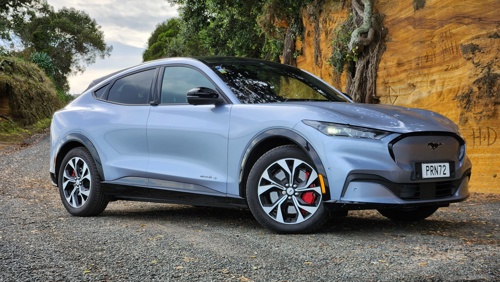A recent study has confirmed what many electric vehicle (EV) owners already suspect - freezing temperatures significantly reduce driving range.
According to research by Recurrent, EVs lose an average of 20% of their range when temperatures hit 0°C or lower.
The study, based on real-world data from over 18,000 EVs across 20 popular models in the United States, highlighted substantial differences in how individual vehicles handle the cold. While some models retain most of their range, others struggle considerably.
Best-performing EVs in cold weather

The Tesla Model X led the pack, retaining 89% of its range in freezing conditions. Close behind were the Tesla Model S (88%), Audi e-tron and Tesla Model 3 (87%), and Tesla Model Y (86%).
Hyundai’s Ioniq 5 and Kona also performed well, maintaining 85% and 84% of their optimal range, respectively.
One key factor in EV cold-weather performance is the presence of a heat pump.
These systems improve efficiency by using a refrigerant cycle to transfer heat from the outside air into the cabin, reducing reliance on energy-intensive resistance heaters.
Notably, 11 of the 13 best-performing EVs come equipped with heat pumps as standard.
The worst cold-weather performers

At the opposite end of the spectrum, several EVs experienced significantly greater range loss.
The Nissan Leaf retained just 78% of its range, while the Ford F-150 Lightning (74%), Chevrolet Bolt (69%), Ford Mustang Mach-E (66%), and Volkswagen ID.4 (64%) were among the worst affected.
Interestingly, GM's Chevrolet Equinox (74%) and Cadillac Lyriq (72%) also performed poorly despite being equipped with heat pumps. Researchers are investigating why these models underperformed compared to similarly equipped rivals.
What influences EV battery performance?

The study found that EVs with heat pumps maintained an average of 83% of their range in freezing weather, while those without managed only 75%.
However, battery chemistry was not a major factor, with lithium-iron-phosphate (LFP) batteries performing similarly to nickel-cobalt-aluminium (NCA) variants.
While cold weather remains a challenge for EVs, the data suggests that vehicles with efficient thermal management systems - particularly heat pumps - retain significantly more range in freezing conditions. The findings may also help motorists adjust their winter driving habits accordingly.





